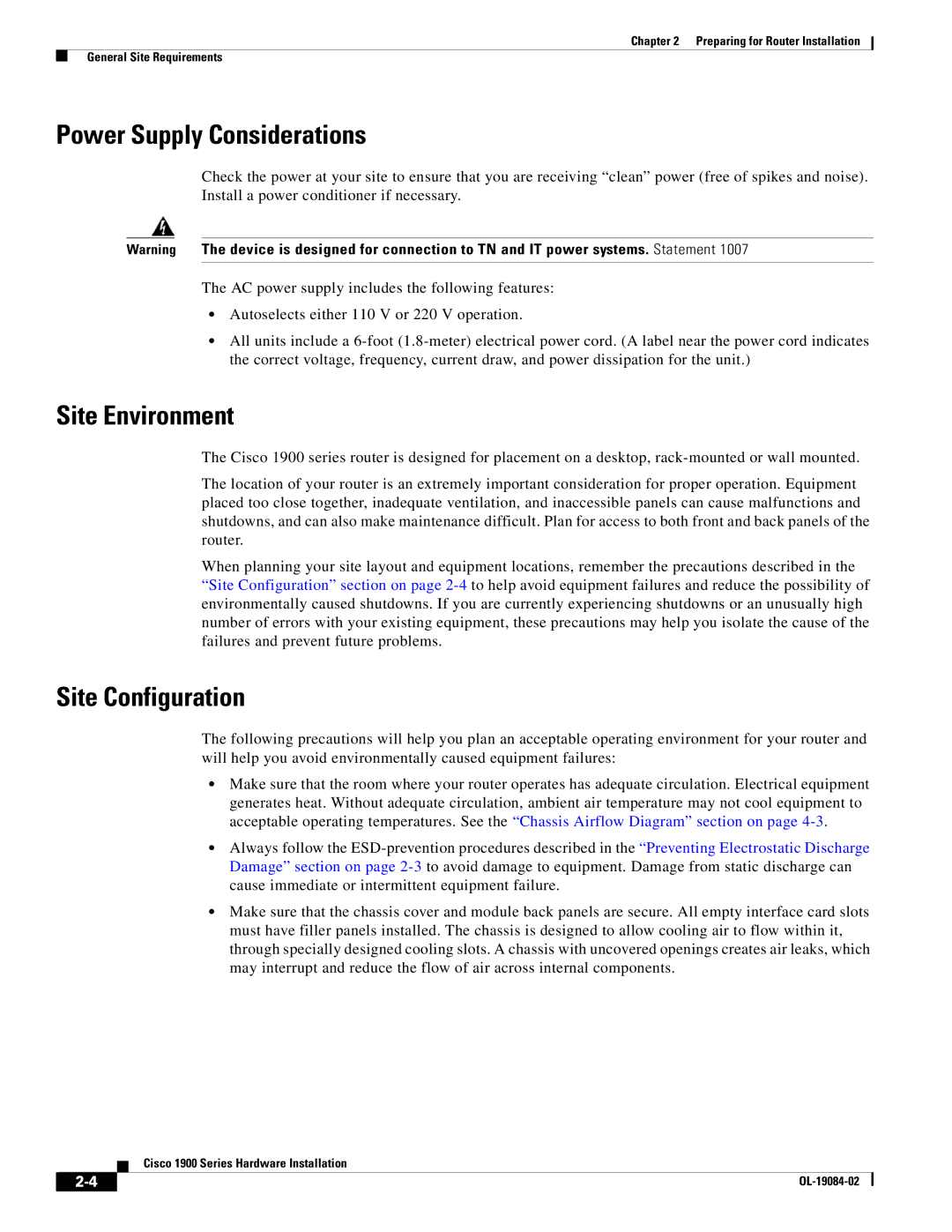
Chapter 2 Preparing for Router Installation
General Site Requirements
Power Supply Considerations
Check the power at your site to ensure that you are receiving “clean” power (free of spikes and noise). Install a power conditioner if necessary.
Warning The device is designed for connection to TN and IT power systems. Statement 1007
The AC power supply includes the following features:
•Autoselects either 110 V or 220 V operation.
•All units include a
Site Environment
The Cisco 1900 series router is designed for placement on a desktop,
The location of your router is an extremely important consideration for proper operation. Equipment placed too close together, inadequate ventilation, and inaccessible panels can cause malfunctions and shutdowns, and can also make maintenance difficult. Plan for access to both front and back panels of the router.
When planning your site layout and equipment locations, remember the precautions described in the “Site Configuration” section on page
Site Configuration
The following precautions will help you plan an acceptable operating environment for your router and will help you avoid environmentally caused equipment failures:
•Make sure that the room where your router operates has adequate circulation. Electrical equipment generates heat. Without adequate circulation, ambient air temperature may not cool equipment to acceptable operating temperatures. See the “Chassis Airflow Diagram” section on page
•Always follow the
•Make sure that the chassis cover and module back panels are secure. All empty interface card slots must have filler panels installed. The chassis is designed to allow cooling air to flow within it, through specially designed cooling slots. A chassis with uncovered openings creates air leaks, which may interrupt and reduce the flow of air across internal components.
Cisco 1900 Series Hardware Installation
| ||
|
